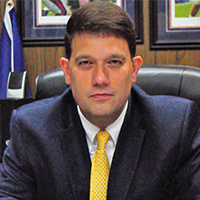Ripley Juvenile Law Lawyer, Mississippi
Not enough matches for Ripley Juvenile Law lawyer.
Below are all Ripley Criminal lawyers.
Brent McBride
✓ VERIFIEDCriminal, Estate, Divorce & Family Law
W Brent McBride is a practicing lawyer in the state of Mississippi.
J Keith Pearson
✓ VERIFIEDMotor Vehicle, Workers' Compensation, Criminal, Personal Injury, Employment
"Trust the process, remain persistent, and let us advocate for the results you need."
Joseph Anthony Murphy
✓ VERIFIEDAccident & Injury, Felony, Car Accident, Wrongful Death, Animal Bite
Dedicated to getting the BEST results for each case!
Joseph Murphy is a practicing lawyer in the state of Mississippi.
Tommy W. Defer
✓ VERIFIEDAccident & Injury, Divorce & Family Law, Criminal, Estate, DUI-DWI
The Law Office of Tommy W. Defer was established in December 2003, and is located in the City of Water Valley, Mississippi (just 20 miles South of Oxf... (more)
Thomas H Comer
Criminal, Bankruptcy & Debt, Accident & Injury
Status: In Good Standing Licensed: 56 Years
Lynne Porter Christopher
Divorce & Family Law, Bankruptcy, Malpractice, Criminal
Status: In Good Standing Licensed: 33 Years
Shelby Kirk Milam
Lawsuit & Dispute, Criminal, Business, Accident & Injury
Status: In Good Standing Licensed: 25 Years





